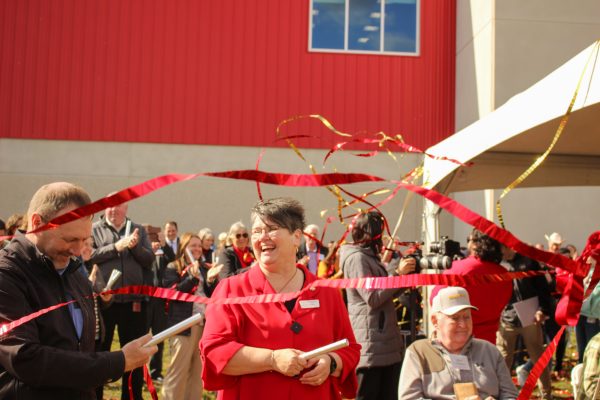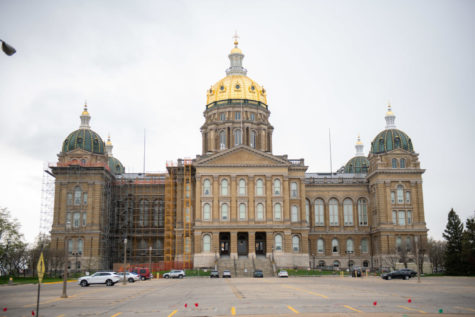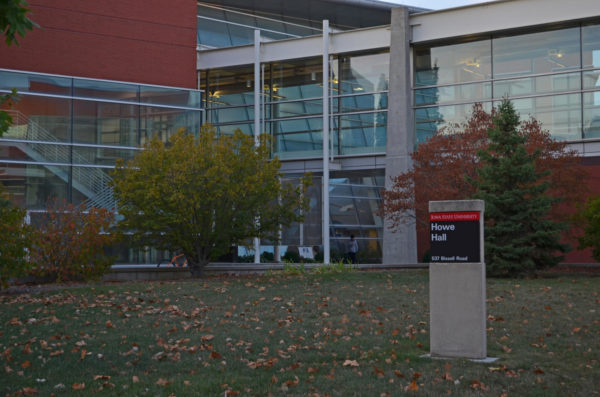Report faults Iowa’s response to alleged assault
September 18, 2008
CORALVILLE, Iowa — An investigative team said the University of Iowa followed the letter of the law but not the spirit of it in its investigation of an alleged sexual assault of a student-athlete last October.
In its report released Thursday to the Iowa Board of Regents, St. Louis-based Stolar Partners said the university’s response was flawed and inadequate, but that there was no attempt to cover up the alleged assault.
Miles said the board will consider the report for a week and determine if any disciplinary action is needed at a session on Sept. 25.
“In this case, we’ve fallen short of the bar,” said Iowa Board of Regents president David Miles. “We did not handle this case in the way that we ought to have, and further work needs to be done.
“I think that was readily apparent.”
But the report effectively absolved University of Iowa president Sally Mason of allegations made in a letter sent by the mother of the alleged victim that she was unaware and unresponsive to the specifics of the case.
The report recommends that the university establish a central coordinating office to investigate sexual assault allegations. It also recommends that such assaults not be handled as an “informal investigation,” as initially occurred in the October 2007 case.
Former Iowa football players Abe Satterfield and Cedric Everson face charges in the sexual assault case. They are scheduled to stand trial on Nov. 3.
The investigation was limited to the university’s response to the incident and its policies when confronted with a sexual-assault case, and doesn’t review the case itself.
Though initially the alleged victim believed she had been attacked by only one man, about a week after the incident the athletics department had “strong evidence” to suggest a second man was involved, according to the report.
In November 2007, she was frustrated with the university’s response, according to the report, so she filed a report with university’s Department of Public Safety.
Four days later, a Department of Public Safety officer investigating the case told the alleged victim that a second man likely had sex with her the night of the assault, and that he had been staying with his girlfriend on the same floor as the alleged victim for three weeks.
The report says that after the assault, the alleged victim was subject to physical threats and insults from other athletes, especially when she was in a group setting like a campus dining hall or study room.
“Some student-athletes behaved in a crude manner, using bullying and abusive tactics toward a fellow student in need of support and nurturing,” according to the report. “That conduct was inexplicable and deplorable.”
The report was harshest on Phillip Jones, the vice president for student services, and University of Iowa general counsel Marcus M. Mills.
Jones was made aware of the alleged assault the morning after, yet told the alleged victim’s mother that he “had nothing” on the incident and didn’t know the alleged victim’s name when she called him in November, according to the report.
“Jones knew of the incident and had the authority and resources to separate the alleged perpetrators from the Student-Athlete,” according to the report. “While Jones’s failure to act did not technically violate the ‘letter’ of the University’s policies and procedures, his inaction was fundamentally inconsistent with the ‘substance’ and intent of those policies.”
“Jones failed to give the Investigators any satisfactory explanation for this misstatement.”
Mills was criticized for holding back documents pertaining to the case from the Board of Regents and for failing to tell the regents about the letters from the alleged victims’ mother.
“To date, Mills has failed to provide the Investigators with any adequate response to why such actions occurred,” the report said.
Mills was also criticized for taking a lead role as a liaison between the university and the family, which the report said was a conflict of interest.
The report also responds to 17 allegations made by the alleged victim’s mother in two letters addressed to university officials, accusing them of ignoring her daughter as she faced harassment after reporting the attack.
One of the allegations said that the university’s athletics department told the alleged victim to handle the incident within the department and not go to the police. The report said the athletic department denies that allegation, but the alleged victim’s family said they felt pressure to keep the incident within the department.
“Such inconsistent perceptions are not surprising and are a prime example of the inherent issues which arise when departments conduct internal investigations of sexual assault allegations involving their own constituents and/or personnel,” according to the report.
Stolar Partner’s James Bryant, one of the investigators, said Thursday that athletics department officials told him they were “uncomfortable” investigating an incident allegedly involving three of their own.
The report recommends an overhaul of the university’s sexual-assault policies. It recommends that no university departments should have the authority to investigate claims of sexual assault, that the general counsel shouldn’t be involved with the management of sexual assault or harassment claims, and that sexual assault be a part of the school’s violence policy.
















